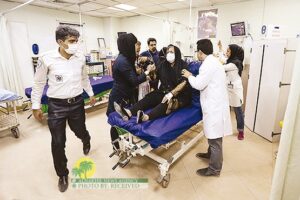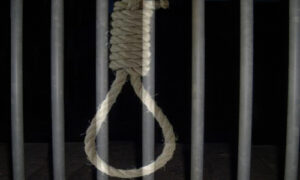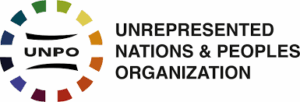Press TV’s controversial broadcasting of humiliating “confessions” by three Ahwazi political prisoners facing imminent execution was attacked this week by the men’s friends and family.
Far from being hardened terrorists, according to accounts by those who know them the three Arab men have a humble background and were only ever interested in giving young people in their community a good education.
Following months of torture, Ali Chebeishat (47), Sayed Yassin Mousavi (35) and Salman Chayan (32), all members of the Al-Shabab (Youth) Cultural Institute of Shush, were forced to confess to bomb attacks on a pipeline and a railway track in interviews with Press TV ahead of their sentencing by a revolutionary court in September. Recorded in June or July, their confessions were broadcast by the regime’s English language television station on 18 November and repeated on Iran’s Channel 3 on 21 November. They were among nine members of the group who were were arrested in November 2012 on charges of involvement in a pipeline carried out in the previous month.
Hakim Chebeishat, a former secondary school teacher and lecturer at Payam Noor University in Shush, was a member of the educational and cultural organisation. Following years of harassment by the authorities and a terrifying interrogation by the intelligence services in April 2012, he fled Iran in August 2012. He spoke to Ahwaz News Agency of the men’s innocence and Press TV’s shaming of their families.
Hakim described the men as peaceful, but claimed that the organisation was constantly threatened by the security services from the time it was established in 2004. The group was established to build village schools through donations with a focus on educating girls and celebrating Eid and Arabic folklore and culture.
He told Ahwaz News Agency: “The men were not formally educated. Ali never went to school but he learned how to read and write in Arabic. Salman was educated up to first year of secondary school and Yassin only completed primary school.
“They were never political, but were always proud of their identity and celebrating Arabic festivals by wearing traditional Arab clothes, which is normal in the village. We were focusing on civil cultural activities. It is a small village of no more than 1,500. Everyone knows each other and can easily be put under surveillance by the intelligence services, so it is not wise to undertake that kind of activity and we were always peaceful.
“The prisoners wanted a better life for youth in their village. They are only committed to their culture and tradition and celebrating Eid.
“We took children to the [provincial] governor’s office to peacefully demand a better education. We started educating many girls and boys in the region, who came from around 11 villages. Our activities were very respected in the area.”
Family members now suffer humiliation and ostracisation
Hakim remains in contact with some family members of the prisoners who he says are highly distressed by the broadcast of the documentary. They claim they were unaware that they were being filmed for broadcast and were simply obeying demands by the authorities to co-operate as part of a plea bargain to save the men’s lives. Instead, they feel they have been humiliated in front of the country and the world and made to share the guilt for crimes the men never committed.
He added: “All the people in the film are known to me. Some of them are my relatives and some others like Yassin are neighbours and friends since childhood. They were fooled by being promised that this film will be only for the Supreme Leader and would save their sons.
“The families now live in terror due to the dangers the prisoners are in and due to the film showing false claims on national and international television. This film has led to the families’ ostracisation within the community. On a cultural level, showing the elders, children and women has had a major psychological impact on the families. The families are appealing to the international community to save their sons.”
Ali Chebeishat was never politically active
Hakim has listed a number of inconsistencies in the documentary, which he believes proves that the claims in the documentary, which the men were forced to repeat, are false:
In the film Khaled (Yassin) said that he met Ali two years ago (10’52”), which is not true. They are from the same village and have known each other since childhood.
They said they were given about AED5,000 (EUR1,000, USD1,400) to buy a laptop. What can they do with a laptop in a rural area with no internet connections?
There is a time conflict. They said they left the village at 9:10pm to go to Sha’ur, which is a maximum journey of 15 minutes. If it took 15 minutes to place the bomb and 30 minutes more to wait for it to explode, it would have gone off just after 10pm. Why did the fire brigade not attend such a devastating explosion until 1.30am as it should take little time to reach the site?
Ali Chebeishat’s “trial” in Ahwaz revolutionary court
Activists note a number of other points which cast significant doubt on the authenticity of the “confessions”. The men refer to dates in the Gregorian calendar, which is not commonly used in Iran and would not have been understood by men with little formal education. Ali Chebeishat is made to confess to family members in Farsi, a language that most would not understand. Ali and Chayan are shown confessing to a judge in Ahwaz revolutionary court. The film was made in June or July, many weeks before their trial in September. The judge’s face is not shown and there are no other people in the court apart from a guard.
The cases of the three men from Shush mirror those of five other men waiting execution, who were all members of the Al-Hiwar Cultural Institute. Al-Hiwar gave tuition to children and promoted cultural activities in the Khalafabad area. The Iranian regime’s execution campaign demonstrates that any form of Arab civic organisation in Iran is portrayed as terrorism, enabling it to impose the death penalty. Ahwazi Arab activists maintain this is part of the regime’s campaign of ethnic cleansing against indigenous ethnic Arabs.



















+ There are no comments
Add yours